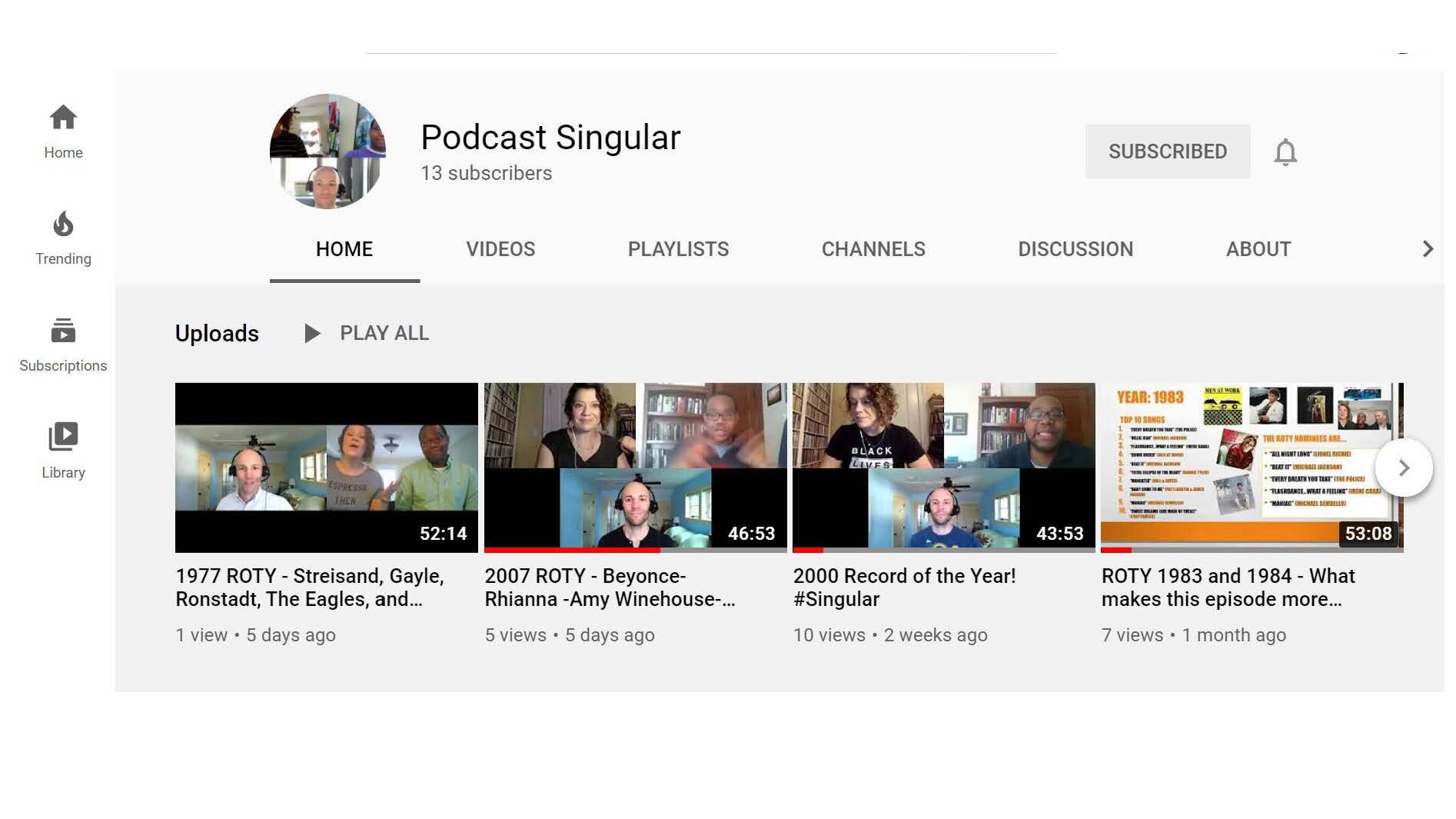Sheltering in place: Music, podcasts, friendship, & 2020
When I began Riffs, Beats & Codas I committed to writing a monthly post and have normally maintained that pace. 2020 has been anything but normal. From deep seated political divides to increased attention to racial injustice globally to the devastation and isolation of the pandemic these are profoundly trying times.
These challenging circumstances have amplified the importance of connecting meaningfully with loved ones. While family, friendship, and community are common themes in our national cultural discourse (e.g., vapid terms like “family values”) many of us have leaned on each other at a more pronounced angle. This past August me and my two closest friends decided to bridge the physical distance necessitated by the pandemic using the Web 2.0 technologies that have redefined how we all communicate. Video calls can be exhausting, as many students and teachers can attest, and traditional social media can displace personal intimacy and our ability to focus. In the proper context, however, these tools can enliven communication and foster genuine intimacy. As such we decided to employ them to fuse our desire to communicate with our mutual love of pop music. The result is Podcast Singular where we review the annual nominees for the “Record of the Year” category awarded annually by the Grammy Awards since 1959. We started with the year 1995 (they’re not chronological) and have covered 14 years total so far, spanning from 1977-2017, and there’s more to come.
Since August 2020, while sheltering in place (mostly) I’ve been recording Podcast Singular with besties Susan Lombardi-Verticelli and Eric Nelson. Look for more regular blogposts in 2021!
Recording these podcasts has generated some great conversations but also helped us stay current with each other’s lives in a different way than before. They have gradually unpacked intimate aspects of our personalities and tastes that we rarely explored before. Between the affirmations, condemnations, and “mehs” the music we disucss has allowed us to map out, and observe, other elements of ourselves.
Do you know what constitutes a “great” song for your closest friends? Are you aware of the music they listened to growing up? When was the last time you thought about how your aesthetic taste has changed over time, and what prompted those changes? In a society that spends billions (trillions?) on mass media but is hostile to art its fascinating how little we reflect on how it shapes who we are.
Our ability to distinguish between ephemera and more enduring expressions, and the ways the taste cultures of our time inform our perceptions is constantly at play. For example, one of our ongoing Pod Singular debates is the tension between ear candy and music of substance. While none of us denies the immediate rush of a singable melody and a catchy hook—all three of us are big POP fans—we’re usually at a consensus about songs that successfully marry musical accessibility with lyrical substance. At the same time we’re willing to challenge musical pomposity. For example, in our podcast on 1988’s nominees we agreed on the enduring appeal of Tracy Chapman’s “Fast Car.” It’s succeeds as lyric poetry set to music not because its an “issue” song. Comparatively, none of us believes Record of the Year winning “message” songs like “We are the World” or Phil Collins’s’ “Another Day in Paradise” have aged well. They were commercial hits about big topics but are are musically slight.
Another strand connecting our aesthetic is our disdain for overproduction and repetition. While technological innovations have expanded the tools available to record producers an avalanche of sound effects, often understood as “signatures” for superstar producers, tends to bury the musical heart of many contemporary songs. I have noted this trend on several nominees including songs by The Black Eyed Peas, Beyonce, and Justin Timberlake. While I’m not a proponent of the notion that acoustic music is “purer” or more musical—there are many artists who employ digital technology deftly—there’s a latent anxiety in many recordings. Aura trumps voices, and hooks are repeated with the numbing incessantness of a commercial. This tacit “branding” fosters a relentless genericism that makes singers seem increasingly irrelevant to the designs of production.
This mini-rant makes me sound old. Some of this surely reflects my age. Sparseness and simplicity are recurring values that distinguished some of the music I grew up with which differs from the more relaxed attitudes about such things for many younger listeners. Preferences have roots and our podcasts draw this out continually.
For years friends have asked me about the podcasts I listen to (I don’t) or referred me to podcasts they believe I would enjoy (eyeroll). Gradually, I’ve challenged myself to heed my friend’s advice and been surprised by the intimacy and insights well-done podcasts, such as NPR’s Code Switch, WNYC’s Dolly Parton’s America, the New York Times’s Still Processing. Though I’m not a regular podcast listener, sitting in the co-creative role has helped me appreciate how this modern approach to broadcasting fosters the listening, understanding, and reflecting practices we need in the best and worst of times.
Check out Podcast Singular on our YouTube Channel: https://www.youtube.com/channel/UC3Jc887by-yT-jm4V7pu2aw
COPYRIGHT © 2020 VINCENT L. STEPHENS. ALL RIGHTS RESERVED.
